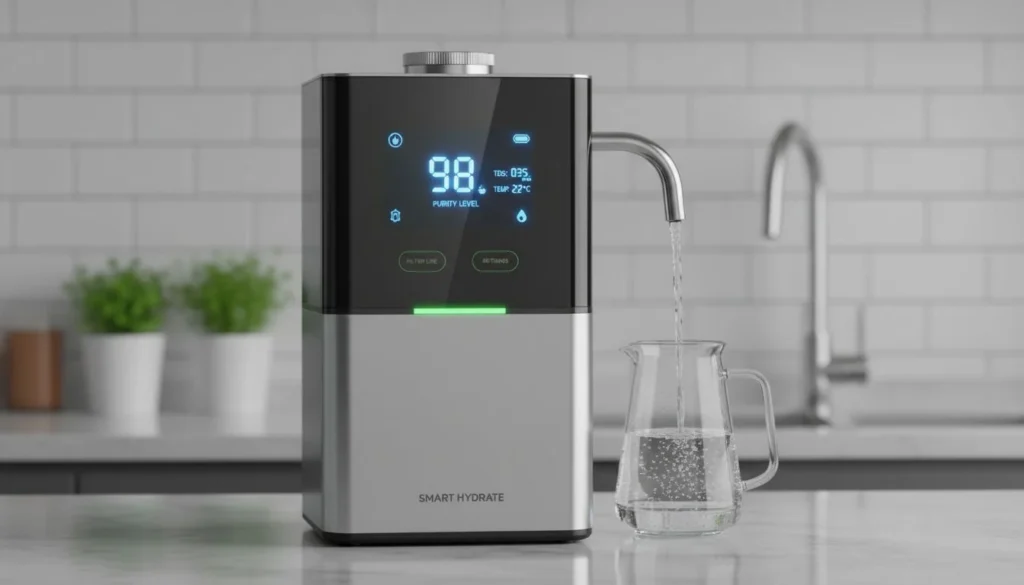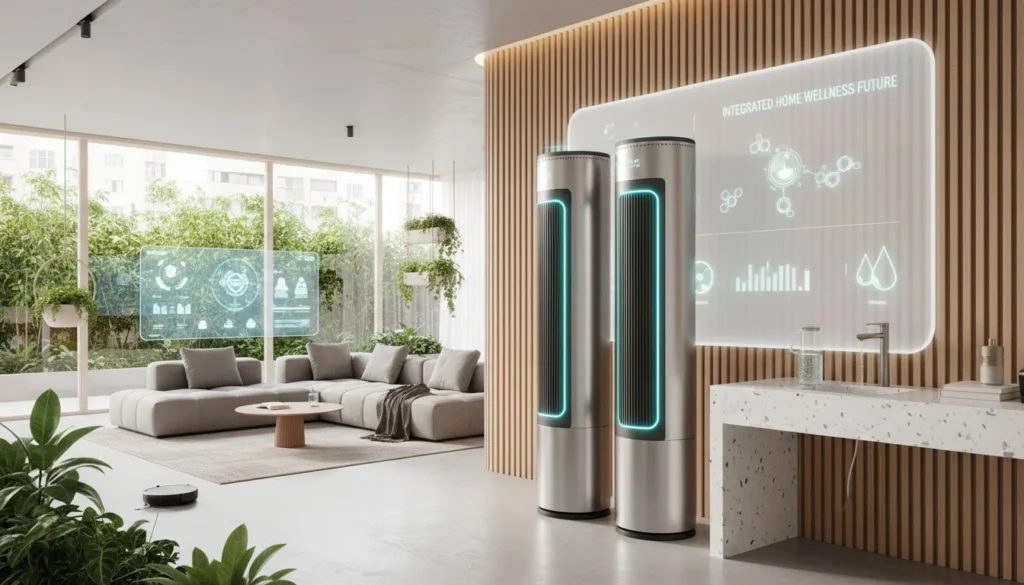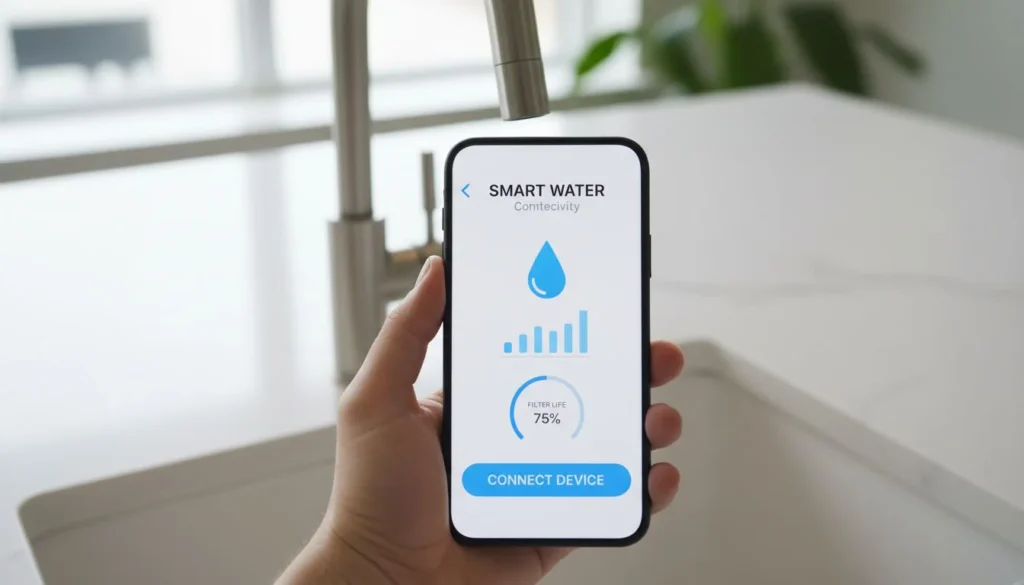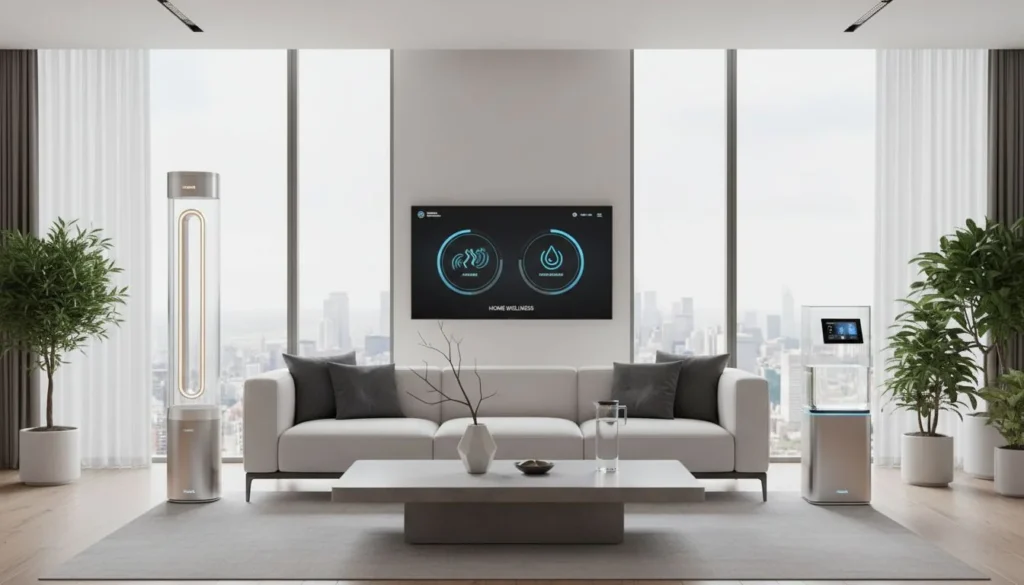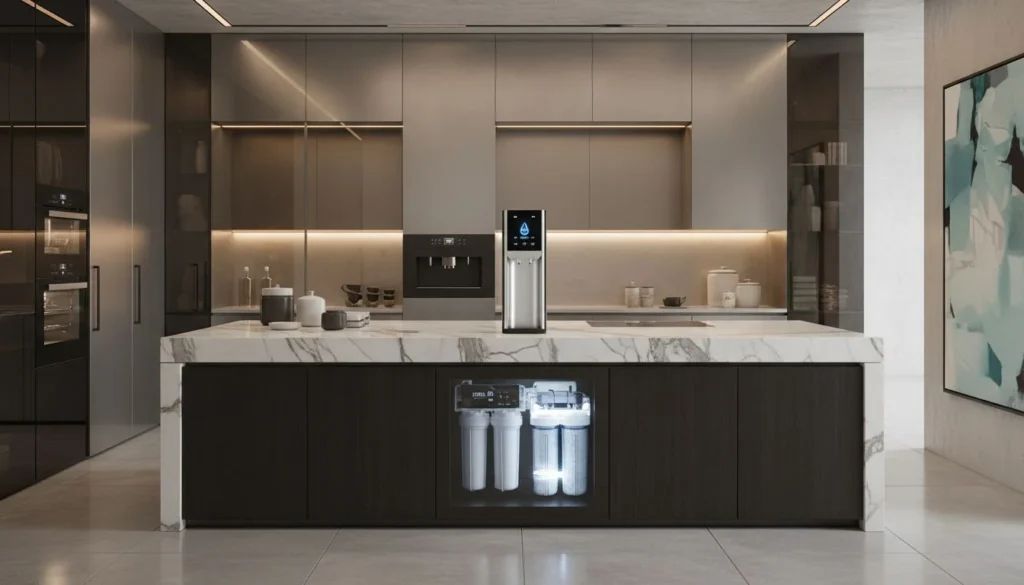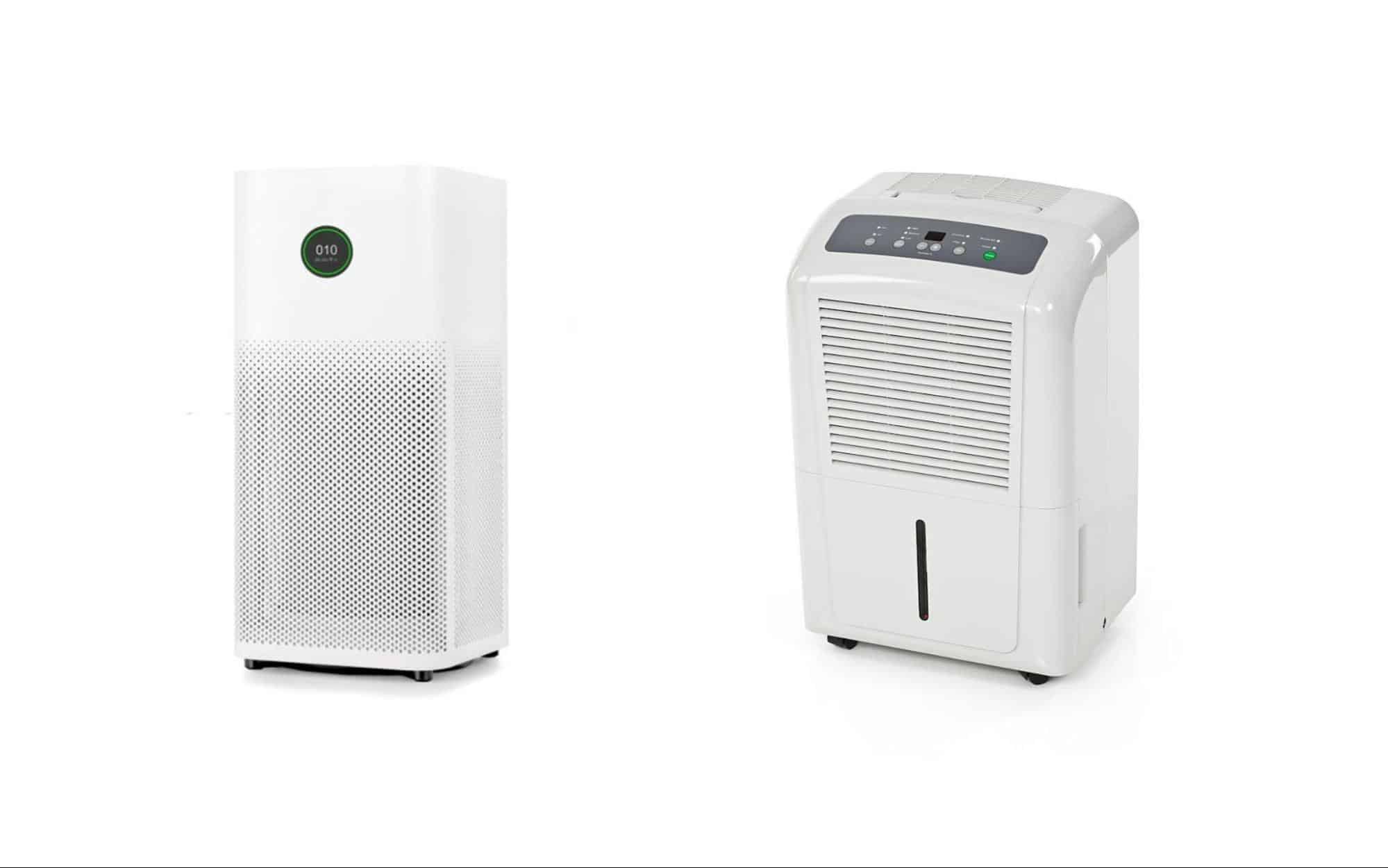
Image Source: iStockPhoto
Air purifiers and dehumidifiers are two popular appliances for modern homes. Their primary goal is to ensure that your indoor air is breathable and fresh. The dehumidifier and humidifier are two devices that are used to regulate the humidity in a room. These devices are used to control the level of humidity in a room to prevent the growth of mold and mildew.
However, they have nuances that you need to know, as air purifiers are not the same as dehumidifiers. Of course, the stark difference between the two is their inherent functions. Learn more about them here.
What Is an Air Purifier vs. Dehumidifier
What Is an Air Purifier?
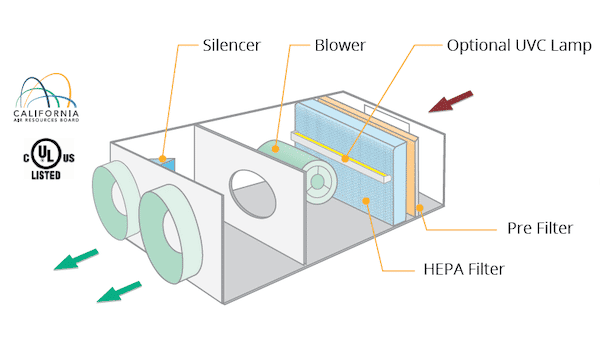
Image Source: California Air Resources Board
As mentioned, air purifiers are designed to capture airborne contaminants in a room. These devices are commonly used in homes and businesses to improve air quality.
Air purifiers work by drawing in air from the room and passing it through several layers of filters. These filters remove articles, such as dust, pollen, and smoke, from the passing air. With the use of specialized filters (i.e., HEPA filters), these air purifiers can remove bacteria, viruses, chemicals, and odor in the air you breathe.
What Is a Dehumidifier?
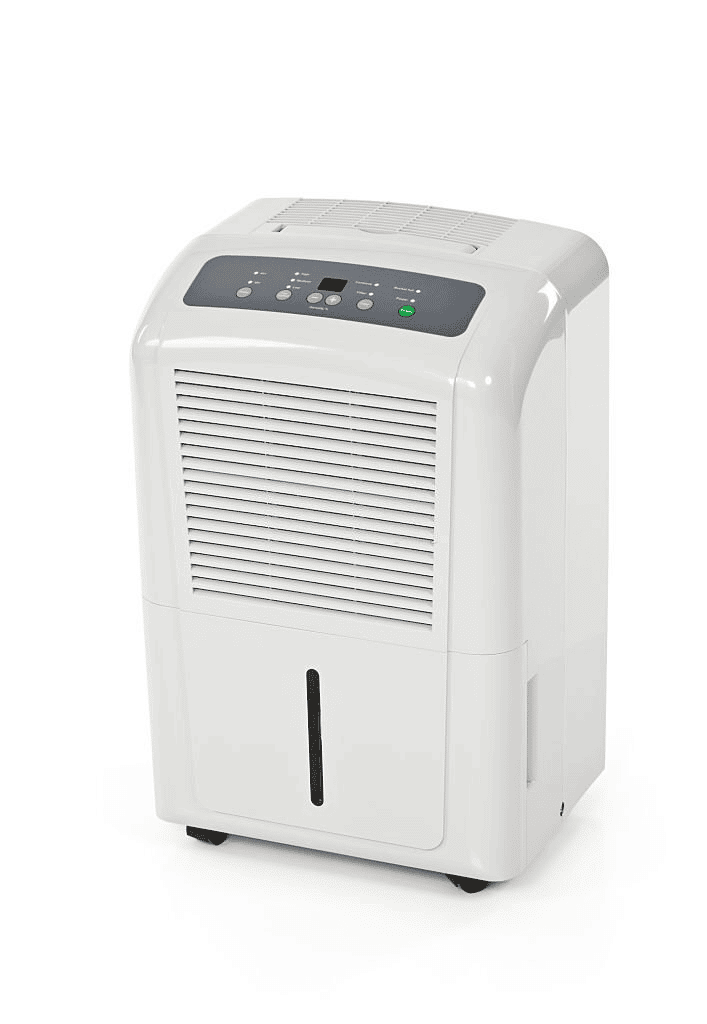
A dehumidifier is an electrical appliance used to remove moisture from the air. This appliance is often used in homes and businesses to prevent mold and mildew growth, as well as to eliminate musty odors.
Dehumidifiers function by absorbing indoor air and passing it through a cold coil. This particular mechanism enables moisture in the air to condense. Once condensation takes place, the water separates from the air. The residual water is then collected in a container or bucket.
Do dehumidifiers have filters? It depends. Some units have filters, while others don't.
Air Purifier vs Dehumidifier Features Overview
| Comparisons | Air Purifiers | Dehumidifiers |
|---|---|---|
| Humidity | Can vary | Used when the indoor relative humidity is higher than 50 percent |
| Applicable room size range | Depending on the model’s capacity | Depending on the model’s capacity |
| Noise Level | 20 - 50 decibels | 25 - 40 decibels |
| Types | Filter-based,Uv lights, adsorbents, ozone generators | Mechanical, air conditioners, desiccants, electronic, ionic |
| Feature | Filters are used to capture and get rid of airborne pollutants. | Increases atmospheric moisture to reduce discomfort brought by by dry conditions |
Air Purifier vs Dehumidifier Benefits
Based on the explanation above, we have listed all the possible benefits of air purifiers and dehumidifiers on the table below. See them below:
| Air Purifiers | Dehumidifiers |
|---|---|
| Relieves asthma and similar symptoms Removes potentially dangerous airborne chemicals and toxins Neutralize foul odor in the airs Mitigate the occurrence of airborne diseases Enhance sleeping pattern Removes radon and asbestos |
Mitigates condensation Reduces mildew and mold growth Minimizes water flooding and leakage clean-up Removes musty smell in the air Relieves various allergy symptoms Prevents growth of pests and infestations Prevents proliferation of dust mites Makes breathing better Protects the structural integrity of your home |
Air Dehumidifier Benefits
To summarize, dehumidifiers are vital appliances in many homes, especially in areas riddled with excess humidity. Again, these dehumidifiers mitigate high levels of moisture in the air. In turn, these appliances prevent the proliferation of mold and mildew.
At the same time, dehumidifiers also help protect your home from damage. Dehumidifiers also elevate air quality, allowing you to breathe conveniently.
Air Purifiers Benefits
Air purifiers can remove harmful particles from the air, including dust, pollen, mold spores, and pet dander. Additionally, air purifiers with carbon filters can remove unpleasant odors from the air. They can leave your home or office smelling fresh and clean. Interestingly, air purifiers generate white noise that could help you sleep better.
Another chief benefit that air purifiers give is to improve one's health. By removing harmful particles from the air, you can reduce your risk of developing respiratory problems and increase your lifespan.
Difference Between Air Purifier and Dehumidifier
The primary difference between air purifiers is their inherent function. Below are their key differences:
Function
- Air purifiers remove airborne contaminants
- Dehumidifiers remove excess water in the air.
Design
- Air purifiers use filters to remove indoor air pollutants
- Dehumidifiers use coils or moisture-removing mediums
Where To Use
- Air purifiers are exclusively used in any indoor space
- Dehumidifiers are solely used indoors
When To Use
- Air purifiers are suitable for areas that have polluted indoor air
- Dehumidifiers are commonly used for rooms with high humidity
Types of Dehumidifiers
Heat Pump Dehumidifiers
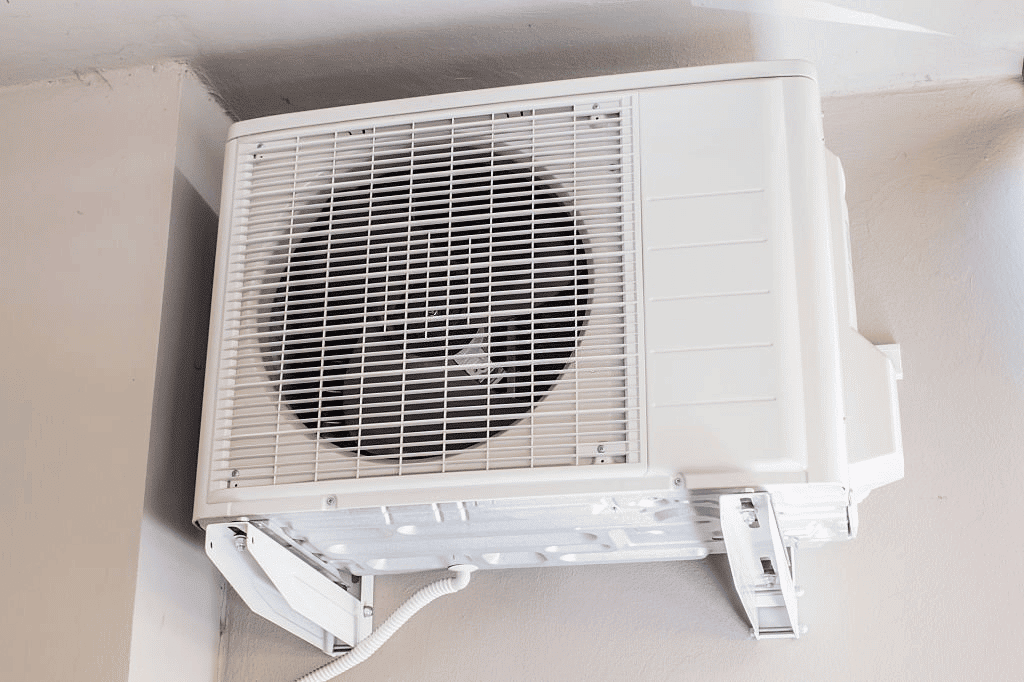
Image Source: iStockPhoto
These dehumidifiers use heat pumps, coils, and fans to remove excess air moisture. The fan sends the air to the coil, resulting in condensation. The residual water is then collected in the tank of the device.
Dehumidifying Ventilators
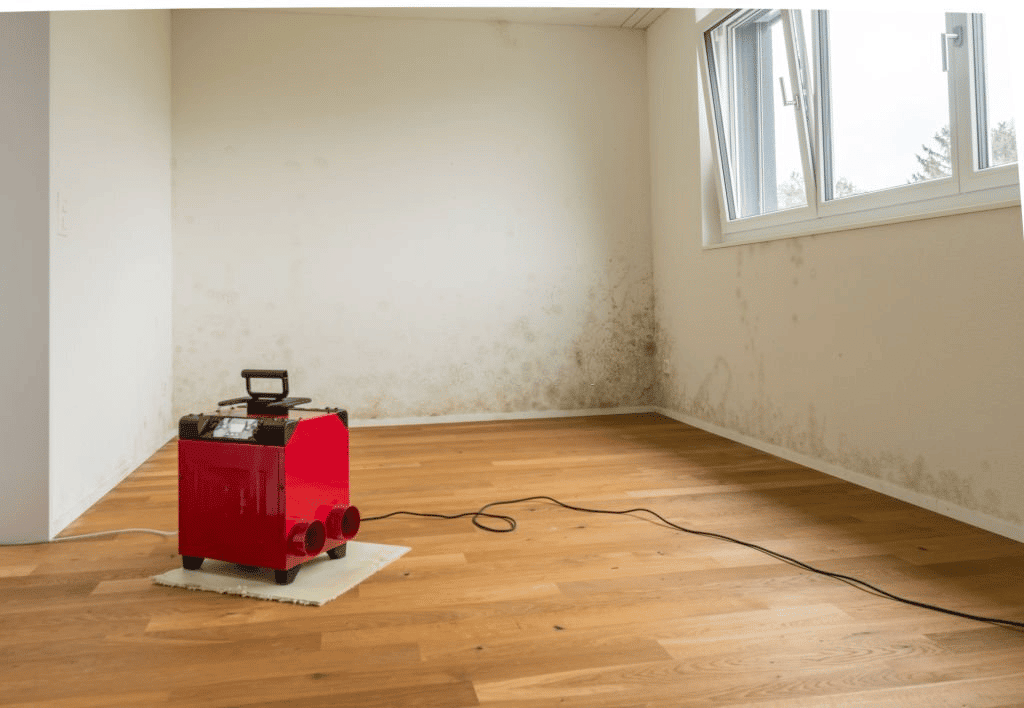
Image Source: iStockPhoto
These ventilators are equipped with exhaust fans for expelling air from your rooms to outside. They are commonly used in crawl spaces, attics, and basements.
Desiccants
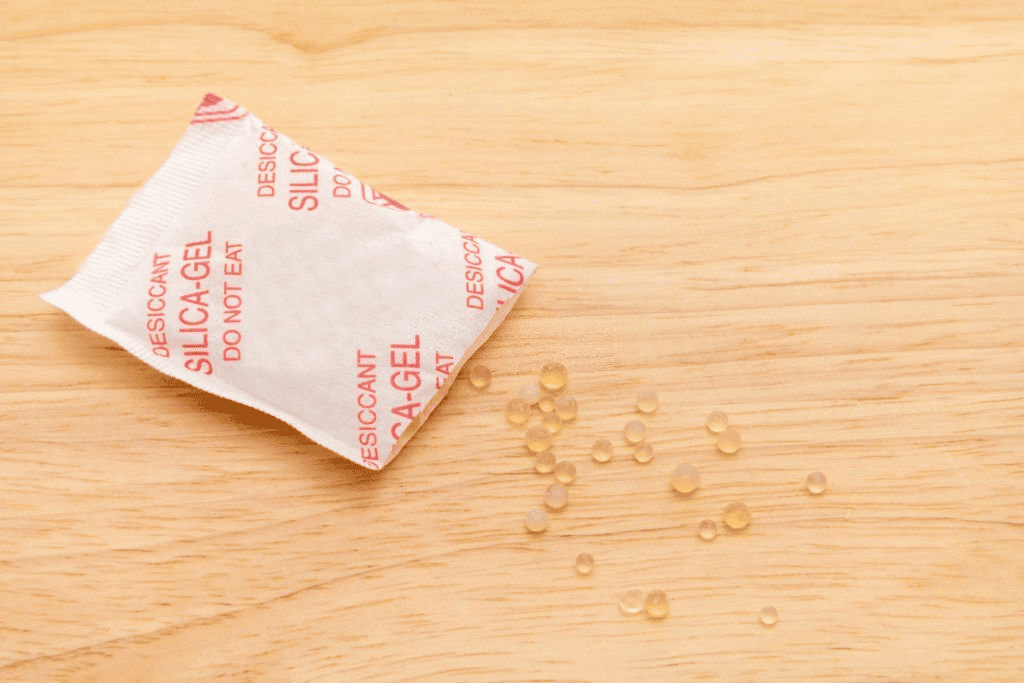
Also known as chemical absorbent dehumidifiers, desiccants have hydrophilic materials that capture water from the air.
Types of Air Purifiers
Filter Air Purifiers
As their name suggests, these air purifiers use several filters for capturing contaminants. Among the commonly used filters are HEPA filters, activated carbon filters, and mechanical filters. Filter air purifiers are considered to be the most effective in removing airborne pollutants. Wall-mounted air purifiers use filters, as well.
UV Light Air Purifiers
UV light air purifiers use ultraviolet radiation to gradually eliminate viruses, bacteria, and other pathogens.
Ozone Generators
Ozone generators release ozone in the air to "clump" airborne particles and let them "fall" on the ground. Accordingly, they can make contaminants heavier, losing their ability to float in the air. However, ozone generators aren't safe, according to the EPA.
Air Purifier vs Dehumidifier: When to Use
You Use an Air Purifier If:
Here are a few guidelines to help you decide when to use air purifiers in your indoor space.
- If you are living in areas with high air pollution, using an air purifier can help reduce your exposure to harmful toxins.
- If one in your household has asthma or other respiratory conditions
- If someone in your home is a smoker, air purifiers are extremely useful.
You Use a Dehumidifier If:
These are the situations where using dehumidifiers are justifiable:
- If you are living in an area where humidity is high
- If your household has high water usage
- If there are evident signs of mold and mildew growth
- If furniture, walls, and wooden structures in your home are rotting due to moisture
What Is a Dehumidifier Good for and How Good Are Dehumidifiers
Dehumidifiers are crucial tools for keeping your home comfortable by removing excess moisture in the air. They are essential to regulate the relative humidity of your living spaces.
Are Dehumidifiers Bad for Your Health?
No. There are no scientific findings that suggest dehumidifiers are harmful to one’s health. After all, dehumidifiers don’t have any harmful emissions.
Do Dehumidifiers Purify Air?
Does dehumidifier clean the air? Some dehumidifiers have filters on them. So technically, these dehumidifiers may help clean your indoor air. However, their effectiveness in purifying air isn’t as good as what air purifiers can offer. In fact, it’s not recommended that you use these dehumidifiers for the sole purpose of air purification.
Are Dehumidifiers Effective?
Yes. Dehumidifiers are generally effective in removing moisture in the air. However, some dehumidifiers are certainly better than other dehumidifiers. So you must be prudent in choosing the ideal dehumidifying unit for you.
What Is an Air Purifier Good for and How Good Are Air Purifiers
Do Air Purifiers Dehumidify?
No. They don’t. Air purifiers function by capturing air particulates that could harm your respiratory health. It doesn’t have a specific design that enables it to capture moisture from the air. Contrary to popular belief, the filters of these air purifiers don’t remove water vapor.
Do Air Purifiers Dry Out the Air?
No. Air purifiers can’t absorb water from the air given that it doesn’t produce any condensation effect. As mentioned, its filters aren’t designed to capture moisture. Even if you run an air purifier for extended periods, it doesn’t dry the air.
Can You Use an Air Purifier and Dehumidifier in the Same Room?
Yes. Both air purifiers and dehumidifiers can exist in a single room. They don’t generate a counteractive or negating action that would prevent one device from functioning. In fact, many experts recommend that you should use these devices at the same time, especially if you have high humidity and indoor air pollution problems in your home.
Where to Place an Air Purifier?
By this guidance an air purifier is best placed in an area where air quality is a problem. Specifically, you should place it at a location where there are no obstructions to its airflow. It could be placed in the central part of your living spaces or any spot where it can’t be surrounded by furniture. You can also put the air purifier in an elevated area so that it can absorb air circulating in the ceilings.
Where to Place a Dehumidifier?
A dehumidifier is best placed in an area where humidity is high. This means areas that receive poor air circulation, such as basements, crawlspaces, and attics. You can also place them near your bathroom and kitchen since these areas have high water usage. As a guideline, make sure that the dehumidifier is not surrounded by any obstruction.
Air Purifier vs Dehumidifier for Basement: Which Is Better?
There’s no precise answer to this question, as the most important thing here is your needs. Is your basement musty or smelly? Is it polluted by dust and other airborne particles? Your answer to these questions could define which device you should use. But as a reminder, you are always free to use an air purifier and dehumidifier at the same time.
You may use a basement dehumidifier with HEPA filters if you think that running two appliances simultaneously is too much for you.
Do I Need an Air Purifier or Dehumidifier for Health?
Both air purifiers and dehumidifiers can improve one’s health. However, there are some cases where either one of the devices can be better than the other.
Air Purifier vs Dehumidifier for Cough
Does an Air Purifier Help With Cough?
The answer is yes, especially if the cough is caused by inhaling pollutants in the air. By removing allergens and other irritants from the air, an air purifier mitigates the triggers for the cough reflex.
Does a Dehumidifier Help With Cough?
While a dehumidifier will not directly treat your cough, it can help improve indoor air quality by removing moisture. Dehumidifiers work by removing water from the air. Less moisture in the air means that your home is less hospitable for dust mites, mold, and mildew. These are all common triggers for coughing.
Air Purifier vs Dehumidifier for Stuffy Nose
Does an Air Purifier Help With Stuffy Nose?
Air purifiers work by trapping particles in the air, including dust, pollen, and pet dander. This can help to reduce symptoms of allergies and other respiratory conditions, such as a stuffy nose.
Does a Dehumidifier Help With Stuffy Nose?
Every time the weather is cold and dry, the air in your home can become heated and dry as well. This can cause irritation in your nose and throat and lead to a stuffy nose. A dehumidifier can help with your stuffy nose by removing the excess water vapor from the air.
Air Purifier vs Dehumidifier: Which Is Better for Bacterial Relief?
Bacterial infestation is a common problem in many households today. Interestingly, air purifiers and dehumidifiers can help you deal with varying pathogens.
Air Purifier vs Dehumidifier for Allergies
Does an Air Purifier Help With Allergies?
Air purifiers are capable of removing bacteria suspended in the air, making it easier for you to breathe. But first, make sure to pick air purifiers equipped with a HEPA filter. HEPA filters are designed to trap small particles, like bacteria, making them ideal for allergies.
Does a Dehumidifier Help With Allergies?
A dehumidifier won't directly kill bacteria, it can help to reduce the moisture in the air. A less humid environment will never be hospitable to bacteria. Hence, dehumidifiers can prevent the proliferation of pathogens. Humidifier or dehumidifier for allergies? For moisture-related allergies, we recommend the use of dehumidifiers.
Air Purifier vs Dehumidifier for Dust Mites
Does an Air Purifier Help With Dust Mites?
The good thing about air purifiers is that they excel in removing dust and dust mites. Dust mites are light enough to be absorbed and captured by these air purifiers.
Does a Dehumidifier Help With Dust Mites?
Dehumidifiers can reduce the presence of dust mites by making indoor conditions less hospitable for them. When the air is cool and dry, dust mites won't be able to proliferate.
Air Purifier vs Dehumidifier for Mold
Does an Air Purifier Help With Mold?
Yes. Air purifiers can capture small particles in the air, thanks to the presence of advanced filter mediums, such as HEPA filters. These filters can trap tiny particles and prevent them from circulating in your indoor air.
Does a Dehumidifier Help With Mold?
Similar to dust mites, dehumidifiers can also make the indoor air less accommodating for mold spores. But does a dehumidifier kill molds? No, it can’t. It can only make your indoor setting inhabitable for these pathogens.
Air Purifier vs Dehumidifier for Asthma
Does an Air Purifier Help With Asthma?
While an air purifier cannot cure asthma, it can remove some of the triggers from the air, which can help to lessen the severity of symptoms. Asthma is caused by specific allergens, such as dust, mold spores, and specific odors.
Does a Dehumidifier Help With Asthma?
Does a dehumidifier help with asthma? Yes. High humidity breeds molds. Molds can cause asthma and other respiratory problems. So having a dehumidifier can actually reduce asthma flares. Torn between humidifier or dehumidifier for asthma? If the asthma is caused by excess indoor moisture, pick a dehumidifier.
Air Purifier vs Dehumidifier: Which Is Better
Air purifiers and dehumidifiers have their respective functions and strengths. But if you can only invest in either of these two appliances, we recommend that you get air purifiers. You see, air purifiers can remove a plethora of indoor air contaminants. It can keep the levels of molds, dust, and pathogens in check. On the flip side, dehumidifiers are limited in what they can do.
When to Buy an Air Purifier
You need an air purifier when there is an increase in asthma and allergy flare-ups. At the same time, you need these devices to maintain the air quality of your indoor air.
When choosing an air purifier, you might consider the following brands:
- HisoAir - Air purifiers from HisoAir are all medical-grade; they are useful for commercial and residential applications.
- Honeywell - Honeywell is a top air purifier brand. It has an extensive catalog of air purifiers for residential use.
- Ider - Ider is a less-known air purifier brand. But its air purifiers are actually worth trying.
HisoAir is a premier brand of highly efficient air purifiers. We cater bulk orders from both local and international clients. We also offer OEM/ODM services. Contact us if you are interested in HisoAir air purifiers. We cater inquiries 24/7.


